Ginger Health Benefits – Ginger Proves More Efficacious Than Rx Drug! Ginger Debate. One of the many gifts of the ancients that marks the advancement of civilization is the art and practice of debate – a structured, verbal argument where different viewpoints have equal opportunity to express their merits (or lack thereof) toward better understanding.

Historically, debate stopped unnecessarily bloodshed and took differences of opinion into a discussion rather than a brutal fight. Today, Human Behavioral Sciences acknowledge that human beings are a passionate species; great minds can differ, and without debate, then bloodshed often ensues.
Case in point, the American Revolution. When the Colonists could not establish their voice with the British Crown regarding representation in matters of law and taxation, a vocal minority took to arms. They valued the freedom to debate more than life.
Ginger Health Benefits: Competitive Debates.
Today, we have the Democratic Live Debates on TV so the public can learn about oppositional candidates’ viewpoints to government processes. To the world, they demonstrate the value of free society.
More than classroom exercises, debates form the foundational process of our legal system—the courtroom is an orchestrated debate. Debate is a sign of a healthy society unless you measure a society’s sickness by the number of attorneys it supports. (That was a gentle’ lawyer joke’.)
Pasteur VS Béchamp.
There have been some doozy public health debates, such as the Germ Theory, reported in newspapers on two continents. The contenders were Louis Pasteur in support of the “germs cause disease, let’s kill all the bacteria” VS Dr. Antoine Béchamp who supported the “let’s make each individual’s inner terrain strong so that germs can’t harm us.”
The inner terrain is a function of 1) being well-nourished, 2) a probiotic populated, biodiverse gut microbiome, 3) being low in toxins, and 4) balanced innate and acquired immune systems.
Pasteur won. Reputedly on his deathbed, Pasteur stated, “Béchamp is right. The terrain is everything.” Now, some 130 years later, Science reveals that both debaters had valuable points, though Béchamp’s position should be 80% of the solution.
There are some really scary, nasty microbes that kill, if/when they find a suitable terrain in a susceptible person. Today, we find malnourished Samoans dying from measles at a much, much higher rate than in well-nourished countries.
Rather than a compromise of “Surgeons wash hands before surgery ala Pasteur” AND “support strong microbiomes (terrain) and high-quality foods such as clean, raw milk ala Béchamp,” humanity engaged a scorched earth policy toward microbes. A denatured food supply (pasteurization), thus lowering the nutrition value of food, seemed to the lesser of two evils when compared to epidemics. Except the body relies on foods to support its internal environment (terrain). This action reduced epidemic diseases, but at an overall cost to nutritional health. With poor nutrition, people acquire other immune challenges such as allergies and chronic, autoimmune processes.
Further, much to our collective chagrin, we find that Medicine is creating Superbugs via antibiotic resistance. Superbugs threaten humanity’s survival while Medicine is trying to save lives using the same methods that created the deadly superbugs—stronger antibiotics.
Humanity must make some course corrections to balance this Pasteur VS Béchamp ongoing debate.
Ginger Health Benefits: Can’t Go Fishin’ If You Lose De Bait.
Debates shape the future for humanity’s benefit. It’s fair to say that human survival and progress is founded on the debate. Yes? Agreed? Nothing could be worse for humanity than to silence debates and allow monstrous institutions to exert brute power and tamper with our healthy debates. Basic freedom of speech is a mainspring of human progress.
Jury Tampering.
Censorship of debate is precisely what Big Pharma/FDA and Google are doing. Jury tampering with your mind. They now block your free access to various debates and funnel their parochial, self-serving information about what’s best for your health. They are now blacklisting opinions based on sound scientific studies when they don’t fit their controlling and monetary agendas. IMHO: It’s a shame that We-The-Sheeple allows this.
Ginger Health Benefits: It Takes Guts.
There is another interesting debate in health, and like the Pasteur VS Béchamp Debate, it involves your gut. Here we find that a humble herb, ginger, outperforms popular prescription drugs used for Ulcerative Colitis.
Wrapped up in this debate are medications called Proton Pump Inhibitors (PPIs) for Gastro-Esophageal Reflux Disease (GERD). Let’s start at the top of the pipe with a definitive debate — one that’s been argued for over 30 years.
Acid Reflux.
GERD occurs when the stomach’s content flows backward—back up the esophagus—causing heartburn, bad breath, chest pain, coughs, damage to the esophageal tissue, inflamed sinuses, breathing problems, and teeth erosion.It often starts out as a nuisance treated with over-the-counter antacids, but over time can dominate a person’s life with discomfort and damage.
LES Rethink.
The lower esophageal sphincter (LES) at the top of the stomach is at the heart of heartburn. When you swallow food, this one-way valve opens to let food into your stomach. Then, for digestion, it shuts to keep your food and digestive juices (Hydrochloric Acid and Pepsin) in your stomach where they all belong.
Your stomach tissue can handle the acids and enzymes just fine, but your tender esophagus is not made to endure the powerful digestive juices. If exposed, they burn it. Pepsin can become an aerosol—fumes that get into the larynx, lungs, and sinuses where it burns and inflames. Acid Reflux occurs when a person belches up food and digestive juices into the esophagus.
Just The Facts.
Biological sciences demonstrate that the neurological signal to shut the LES comes from the presence of caustic hydrochloric acid (HCl) and Pepsin in the stomach. This is a pivotal point to understand.
Hydrochloric acid and Pepsin initiate specific digestive processes. They tell the pancreas to get ready to release pancreatic digestive enzymes to finish the digestive process. They also instruct the LES valve to shut tightly to keep the food and enzymes refluxing back up into the esophagus.
Ginger Health Benefits: The Low Down.
Dr. Jonathan Wright (MD), the author of Why Stomach Acid Is Good For You, states that 90% of esophageal reflux is due to LOW stomach acid. This is pivotal validation because, in Natural Health, we recognize that most often, acid reflux is caused by LOW stomach HCL and Pepsin enzymes. Yes, low amounts.
That seems counter-intuitive when all the TV commercials preach to quench excess stomach acid because it’s too HIGH. What they recommend is to neutralize nagging LOW stomach acid that’s causing heartburn, or quench normal stomach acid processes that are temporarily overstimulated from mom’s spicy meatballs, eggnog, crème Brulee, and maraschino cherries all eaten in the same meal.
The stomach’s parietal cells make HCl and Intrinsic Factor (necessary for Vitamin B12 absorption). The stomach’s Chief Cells make Pepsin. If those cells become weak, worn out, aged, or destroyed by autoimmune action (collateral damage) fighting a stomach bacterium called Helicobacter pylori, then the LES valve may not receive the neurological signals to close appropriately.
This can mean that when the person lays down to sleep, the stomach acids slosh upstream and burn the esophagus. A quick burp and food and acids rise in the esophagus. Aerosol Pepsin can vaporize into the lungs and sinuses and cause an inflammation-reaction.
One factor—a tough one—that we must accommodate is that chronic esophageal reflux can damage the LES so that it becomes scarred and leaky. This is “mechanical damage” and presents a situation where a person must eat early in the day to employ gravity to keep food from rising in the esophagus and sleep sitting up in a recliner for that same purpose.
Acid-Reflux Debate.
On one side, we have the natural-health, biological concept that Acid Reflux is caused by LOW stomach acid. Thus, the solution is to correct the cause which might be to address H-pylori overgrowth, stop snacking (depletes HCl), repair a hiatal hernia, stop eating too late (food churning during repose), and using HCl/Pepsin supplements to bolster the stomach’s enzymes while the Parietal and Chief Cells self-repair so the stomach can return to normal (and the person stop using those temporary supplements).
180° Mystery.
The current medical concept regarding esophageal reflux is diametrically opposite. They blame too much HCl getting into the esophagus (so true!), and thus their suppressive solution is to retard the stomach’s production of hydrochloric acid.
Thus, rather than raising HCl/Pepsin to shut the valve, they inhibit the stomach’s ability to make hydrochloric acid/pepsin by employing a dangerous class of drugs called Proton Pump Inhibitors (PPIs).
Why dangerous? The reduction of HCL means much less calcium absorption for bone health. It means fewer minerals and amino acids for cellular nutrition. Prescription PPI drugs are linked with:
- Chronic kidney disease progression
- 44% increase in the risk of dementia
- Risk of fatal Clostridium difficile (bacteria) infection
- Higher risk of bone fracture
- Vitamin deficiencies, B12 and others
- Mineral deficiencies (calcium, magnesium, iron)
- Reduced nerve and blood pressure functions
- Increased risk of pneumonia
- Suffer rebound when you try to stop taking the suppressive drug.
A meta-analysis of PPIs reveals up to 40% ineffectiveness.
So, like the Pasteur VS Béchamp debates, the truth lies somewhere in the “middle” with 90% of people needing the natural health approach to help their body’s cure themselves, and 10% may require medical help. Late-comers to treatment often comprise the 10% because of massive, erosive damage to the LES. The best they can do is retard HCL/Pepsin from wreaking havoc outside the stomach.
Even so, natural methods can help spare the esophagus from further damage, and loss of teeth from HCl regurgitating into the mouth during sleep while assisting the body in initiate possible repairs. As Ben Franklin wrote, “An ounce of prevention is worth a pound of cure.”
Ginger Health Benefits.
Scientific studies reveal that ginger (Zingiber officinale) performs well, even better than medications, for inflammatory bowel diseases such as ulcerative colitis and its risk of developing into cancer.
One of the hundreds of ginger-molecules, Zerumbone, helps the body inhibit both colon and lung cancer. Another molecule, zingerone, shows promise regarding bowel cancer.
Like so many herbs, ginger is a powerhouse of antioxidants that serve the body to prevent oxidative stress to cell membranes. It’s also a natural anti-inflammatory and pain-relieving herb. It helps to strengthen digestion and is famous for curbing nausea, both from motion sickness as well as side effects of medications, including chemotherapy.
Bloating Support. Ginger is a primary spice in eastern culture cuisine and a primary herb in the home medicine chest. Ginger supports proper stomach contractions (gastric emptying) that send stomach contents down the pipe, thus supports people experiencing gastroparesis (delayed stomach emptying). This benefit can help with the back-pressure bloating that’s often involved with GERD.
Ginger Health Benefits: Ginger Pickle.
Here’s a quick way to incorporate ginger into your diet. It’s called the ginger pickle.
Get a 3″ segment of organic ginger root. Peel it. Slice it into thin wheels and put it in a jar. Cover the wheels with organic lemon juice. Add 1 TBSP salt (Himalayan is good.) Put a loose lid on the jar, and voila! Ginger pickle. Now eat just one tiny wheel before each meal until you run out in 12-15 days.
You can do likewise with a piece of turmeric root and have a ginger/turmeric pickle.
The ginger pickle provides the wonders of the herb, ginger, and also probiotics that help the body regulate digestion, gastro-intestinal motility, balanced immune function, and a positive mood. Herbally, ginger warms the digestive processes with myriad botanical molecules that support the health of the whole person.
Ginger Health Benefits: Citations:
Heidelbaugh JJ. Proton pump inhibitors and risk of vitamin and mineral deficiency: evidence and clinical implications. Ther Adv Drug Saf. 2013;4(3):125–133. doi:10.1177/2042098613482484
Gomm, et. al. Association of Proton Pump Inhibitors With Risk of Dementia, A Pharmacoepidemiological Claims Data Analysis, J of American Medical Association Neurology, 2016;73(4):410-416. doi:10.1001/jamaneurol.2015.4791
Jameson R, et al. Proton Pump Inhibitor and Histamine 2 Receptor Antagonist Use and Vitamin B12 Deficiency, JAMA. 2013;310(22):2435-2442. doi:10.1001/jama.2013.280490
Ebrahimzadeh AV, Somi MH, Asghari JM, Ostadrahimi A, Moaddab SY, Lotfi N. The Gastro-protective Effect of Ginger (Zingiber officinale Roscoe) in Helicobacter pylori Positive Functional Dyspepsia. Adv Pharm Bull. 2019;9(2):321–324. doi:10.15171/apb.2019.038
Ke F, Yadav PK, Ju LZ. Herbal medicine in the treatment of ulcerative colitis. Saudi J Gastroenterol. 2012;18(1):3–10. doi:10.4103/1319-3767.91726
MehrnazNikkhah-Bodaghia, IradjMalekib, ShahramAgahc, AzitaHekmatdoosta. Zingiber officinale and oxidative stress in patients with ulcerative colitis: A randomized, placebo-controlled, clinical trial. Complementary Therapies in Medicine, Volume 43, April 2019, Pages 1-6. https://doi.org/10.1016/j.ctim.2018.12.021
Fifi AC, Axelrod CH, Chakraborty P, Saps M. Herbs and Spices in the Treatment of Functional Gastrointestinal Disorders: A Review of Clinical Trials. Nutrients. 2018;10(11):1715. Published 2018 Nov 9. doi:10.3390/nu10111715
Kines K, Krupczak T. Nutritional Interventions for Gastroesophageal Reflux, Irritable Bowel Syndrome, and Hypochlorhydria: A Case Report. Integr Med (Encinitas). 2016;15(4):49–53.
Giacosa A, Guido D, Grassi M, et al. The Effect of Ginger (Zingiber officinalis) and Artichoke (Cynara cardunculus) Extract Supplementation on Functional Dyspepsia: A Randomised, Double-Blind, and Placebo-Controlled Clinical Trial. Evid Based Complement Alternat Med. 2015;2015:915087. doi:10.1155/2015/915087
Giacosa A, Guido D, Grassi M, et al. The Effect of Ginger (Zingiber officinalis) and Artichoke (Cynara cardunculus) Extract Supplementation on Functional Dyspepsia: A Randomised, Double-Blind, and Placebo-Controlled Clinical Trial. Evid Based Complement Alternat Med. 2015;2015:915087. doi:10.1155/2015/915087
de Vries DR, van Herwaarden MA, Smout AJ, Samsom M. Gastroesophageal pressure gradients in gastroesophageal reflux disease: relations with hiatal hernia, body mass index, and esophageal acid exposure. Am J Gastroenterol 2008;103:1349-1354.
Siddaraju M.N., Dharmesh SM, Inhibition of gastric H+,K+‐ATPase and Helicobacter pylori growth by phenolic antioxidants of Zingiber officinale, Molecular Nutrition & Food Research, Wiley Online Library, 05 March 2007 https://doi.org/10.1002/mnfr.200600202
Harvard Health Letter, Do PPI’s have long-term side effects? January, 2009
Hu ML, Rayner CK, Wu KL, Chuah SK, Tai WC, Chou YP, Chiu YC, Chiu KW, Hu TH. Effect of ginger on gastric motility and symptoms of functional dyspepsia. World J Gastroenterol. 2011 Jan 7;17(1):105-10. doi: 10.3748/wjg.v17.i1.105.


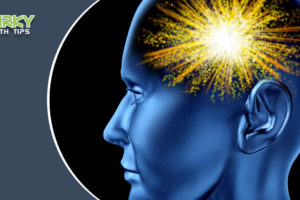


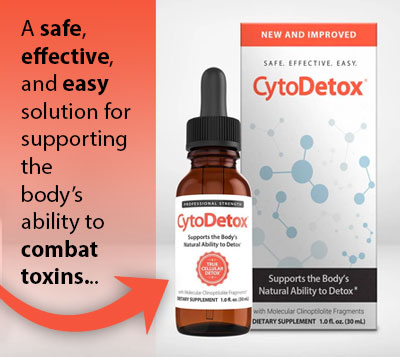
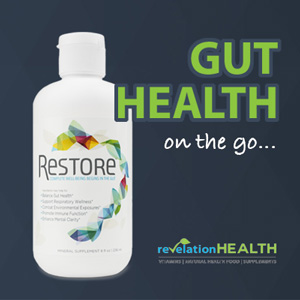
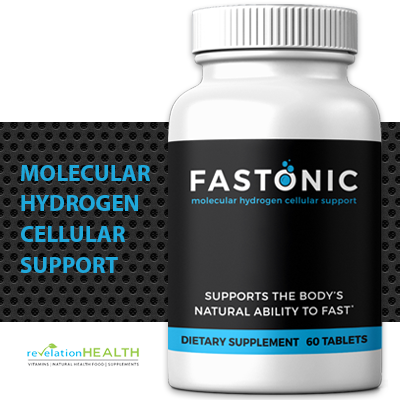
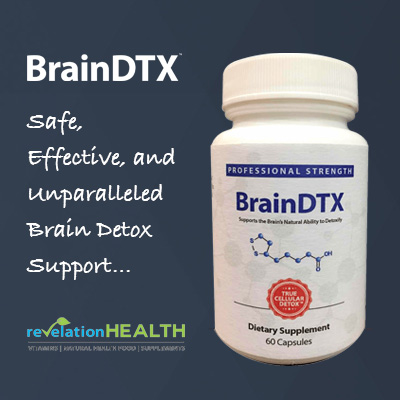
4 Comments
Leave your reply.